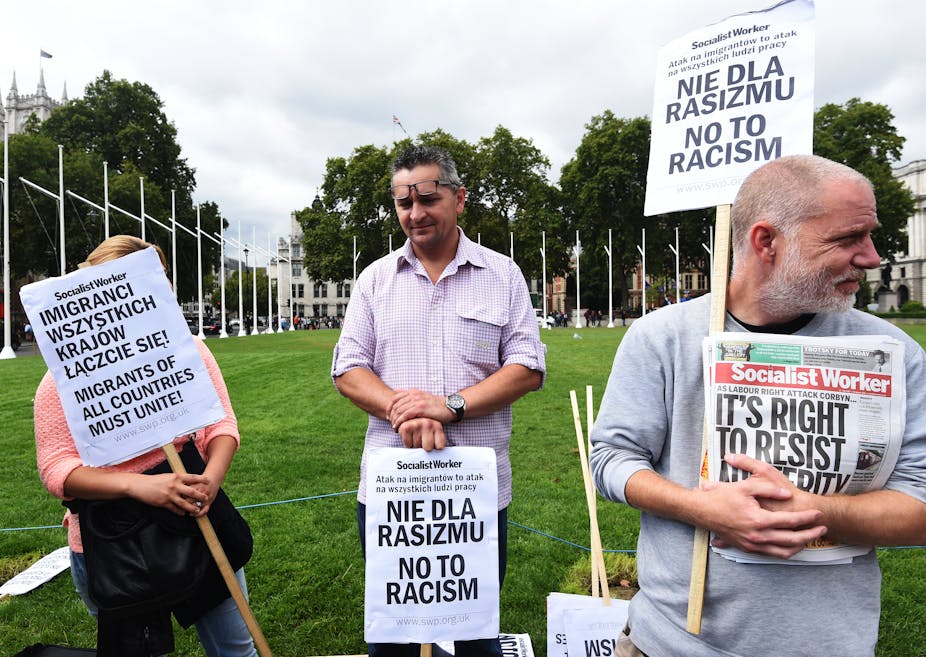The question of whether the UK should leave the EU is being reinterpreted by some as an opportunity to call for EU citizens to leave the UK. A tiny but vocal minority of Brexit supporters are showing hostility towards the people they think should leave the country. There has been a surge in reports of hate crimes and leaflets have been sent around one English town calling for Polish people to leave, in very unpleasant terms.
This recent spate of post-Brexit racially motivated antagonism toward Eastern Europeans – and Poles in particular – is a troubling development. But it’s nothing new. This kind of racism has been festering for years.
Eastern Europeans have been maligned in the tabloid press for the past decade. They have been the focal point for recession and post-recession anxieties that have been legitimated by politicians who present immigration in general, and EU migration specifically, as a problem that needs to be urgently addressed.
And it gets personal. The general consensus that immigration is a problem has, for some time, been expressed as a specific concern about immigrants. This is what’s behind a small but growing number of racially motivated incidents involving Eastern Europeans.
From Loyalist attacks in Belfast in 2009 that forced more than 100 Romanians to abandon their homes, to the brutal murder of a Polish migrant worker in Wrexham in 2007, Poles, Romanians, and other Eastern Europeans have long been targeted and victimised by racially motivated attacks.
Northern Ireland police statistics show a 162% increase in racist crimes against Eastern Europeans between 2012 and 2015 while the number of victims of racist attacks who were recorded as being “gypsy/traveller, Polish white and other white” in Scotland rose by 410% between 2005 and 2014.
In 2010, the Federation of Poles in Great Britain reported a 20% rise in racist incidents against Poles. This figure was corroborated by an Institute of Race Relations report which identified 7% of all victims of racially motivated attacks in 2009 as Polish.

The figures could be much higher, given the general ill will towards Europeans. But acts of racism require specific targets, and the whiteness of Eastern Europeans effectively means they can move around without drawing unwanted attention to their immigrant origins. Indeed, in most cases, it’s only their language (speaking their own languages or accented English) that might potentially out them.
This makes it hard to target Eastern Europeans. But some certainly are trying. The impulse is there – an impulse that has been granted credibility by a media and political elite which has painted a crude picture of immigration as a problem. From there, it’s a slippery slope towards immigrants being the problem.
Of course, not all people expressing concerns about immigration are perpetrators of racially motivated violence. Far from it. But Brexit has supplied a new context for the vilification of migrants, which in a small number of cases can lead to racially motivated abuse.
This racism is not new: it’s a variation on a migration theme that’s been around since the onset of mass migration on an industrial scale. Indeed, the racism experienced by Eastern Europeans pales in comparison to that experienced by previous cohorts of immigrants, for whom it’s not so easy to escape the gaze of racists – and who are now also finding themselves on the receiving end of post-Brexit racism.
The current racism against Eastern Europeans reminds us of a longer term problem we have in adjusting to the perceived disruptions that come with immigration. Even when migrant and native look the same, racism has a way of making them different – of ensuring that “they” are not “us”.

